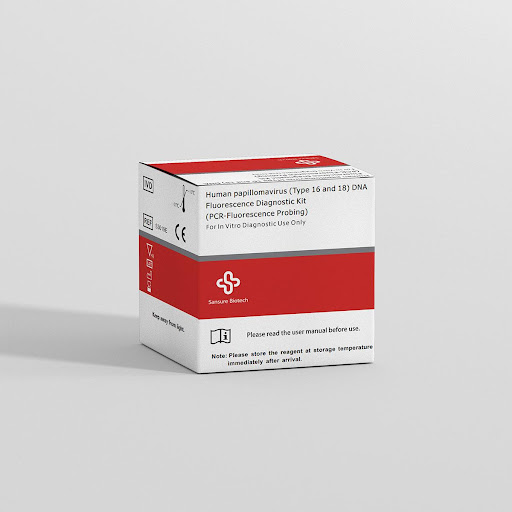To sign up for our daily email newsletter, CLICK HERE
When we talk about HPV, most people are aware of it, for HPV is the potential cause of cervical cancer. According to a study, 13000 new cases of cervical cancer are reported annually, and about 4000 poor victims die of this cancer [1].
But does getting infected by HPV equal getting cancer? In this article, we are going to share with you more solid knowledge about this threatening virus, and 3 defense lines for cervical cancer prevention.
What is HPV?
HPV, or human papillomavirus, is a virus that is transmitted through sexual contact. There are over 200 different types (strains) of HPV. While some strains can cause no symptoms, others can lead to the development of warts or cancer! HPV is a virus that is spread through sexual contact. High risk HPV is the term used for a group of HPV types that are more likely to cause cancer. In most cases, HPV does not cause any symptoms, but high-risk HPV can cause cancer of the cervix, vulva, vagina, penis, anus, or throat. That is why high-risk HPV tests and treatments are considerably more important.
Infection Channels and Symptoms
Generally transmitted through sexual contact, HPV can lead to different level of issues, depending on its type. In most cases, HPV does not cause any symptoms, as the human body produces antibodies that clear the virus, as long as the immunity system is healthy.
Though some may show no signs at all, for those with lower immunity, HPV has been linked to severe disease. Those infected with HPV may experience a variety of symptoms, one of which is genital warts, the small bumps or clusters of thickened skin appearing in genital areas. Other symptoms include itching, burning, and pain in the genital area.
What needs to pay attention to is the high-risk HPV, the term used for a group of HPV types that are more likely to cause cancer of the cervix, vulva, vagina, penis, anus, or throat. HPV types 16 and 18 are two of the most common high-risk HPV, wreaking havoc on their victims worldwide.
Relation between HPV and Cervical Cancer
Back to the question in the title: does getting infected by HPV mean getting cancer for certain?
HPV is not a death sentence. As previously mentioned, most infected with HPV show no symptoms at all, as the human body produces antibodies to kill the virus and cure itself. Only in the most severe cases, where high-risk HPV persistent infection occur, could the patients end up with cervical cancer.
So, let’s put it this way: most cervical cancer is caused by high-risk HPV, but getting HPV does not necessarily lead to cervical cancer.
Regardless of its danger, HPV is a virus that can be prevented through vaccination and discovered through high-risk HPV tests.
3 Defense Lines Against HPV
Since HPV is a sexually transmitted virus, cervical cancer prevention starts with safe sex practice naturally. Apart from that, there are 3 lines of defense that would either keep you safe or help you out if you do catch it.

Vaccination always ranks first. 9 valent HPV vaccine, quadrivalent HPV vaccine and bivalent HPV vaccine are three of the most commonly seen ones in the market. This vaccine contains virus-like particles (VLPs), which are non-infectious, yet good for triggering the antibodies production. With these antibodies inside us, even when facing the real virus, our immune systems function to the fullest potential to eliminate them, even without our slight notice.

However, vaccination does not work for those already infected with HPV. In this case, screening is the second line of defense, so as to discover if they are actually infected, and which type they infect. The earlier they run the test and get the result, the better doctors can do to confirm their diagnosis result and cure the diseases. High risk HPV test is both important and urgent considering the severity of disease these genotypes may cause. Therefore, diagnostic kits for high-risk HPV test have gained considerable importance in testing and screening.
When it comes to high-risk HPV test, Sansure’s HPV test kit distinguishes itself from all sorts of selections in the market. Sansure’s HPV test kit identifies HPV types 16 and 18 specifically. This high-risk HPV test and diagnostic kit applies advanced magnetic beads technology, which helps to get the result in rapidly, with over 99% accuracy. Sansure’s HPV diagnostic kit is an important tool for clinical research and diagnostics, and it has the potential to improve the management of HPV infections worldwide.
Treatment of pre-cancer includes surgical removal of the abnormal layer, cryosurgery, laser and colposcopy. Do not hesitate or fear to receive the treatment as the doctor suggest.
Better Prevention than Treatment
Just like any other cancer, treatment and surgery can be performed to cure the cervical cancer. Still, pre-cancer prevention and earlier detection are more important than post-cancer treatment. Cervical cancer can be cured, but preferably, it shall be detected and prevented, as no one should suffer from it.
Sansure has been setting the trend among diagnostic kits and molecular detection. Keeping the fast-changing industry trends in view, improving and upgrading diagnostic tools/kits for both medium and high-risk HPV test, Sansure’s products have the highest standards and outstanding features like specificity and sensitivity.
Stay safe and healthy with Sansure.
References:
[1] Bosch FX, Lorincz A, Muñoz N, Meijer CJ, Shah KV. The causal relation between human papillomavirus and cervical cancer. J Clin Pathol. 2002 Apr;55(4):244-65. doi: 10.1136/jcp.55.4.244. PMID: 11919208; PMCID: PMC1769629.